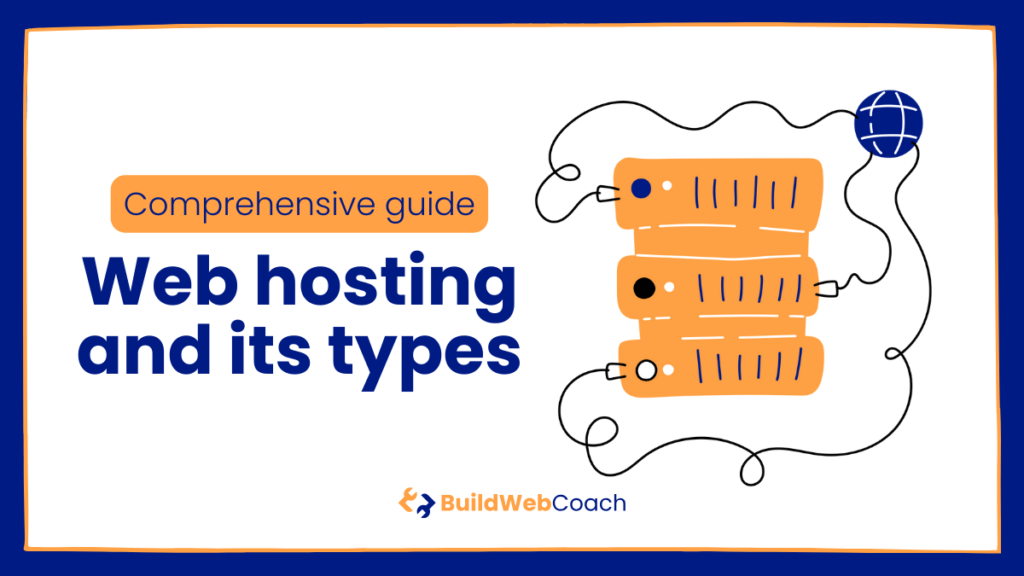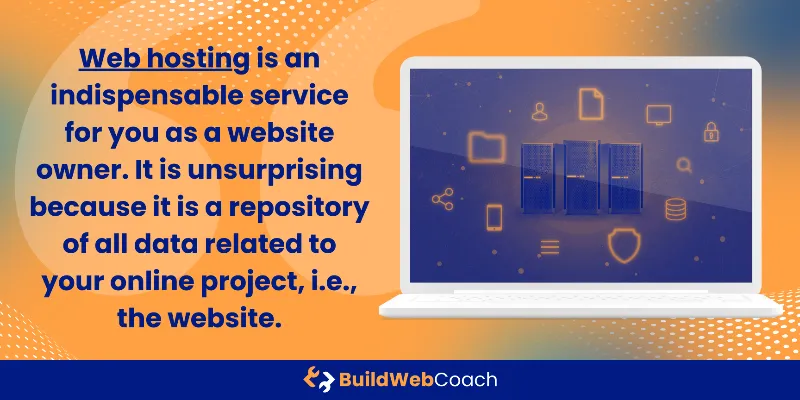Last Updated on February 23, 2024
Web hosting is foundational for anyone looking to establish an online presence. Whether you are an individual wanting to start a blog, a small business aiming to sell products online, or a large corporation seeking to enhance digital operations, securing a slice of real estate on the internet begins with finding the right web hosting solution. Essentially, web hosting services store the files and data that make up your website, ensuring they are accessible to visitors worldwide via the internet.
Understanding the various types of hosting solutions is critical to making an informed decision that aligns with your specific needs. Options range from shared hosting, ideal for entry-level websites, to more robust offerings like dedicated servers, which offer greater control and resources. Additionally, uptime, security, and scalability are important considerations when evaluating potential hosts. The hosting service you choose directly impacts your website’s performance, reliability, and growth potential.

Web Hosting and Its Types:
Key Takeaways
- Choosing the right web hosting is crucial for your website’s accessibility and online presence.
- Hosting solutions cater to various needs, from personal blogs to large business websites.
- Performance, security, and scalability are key hosting features for optimal website functioning.
- Web Hosting and Its Types:Key Takeaways
- Understanding Web Hosting
- Types of Hosting Solutions
- Key Hosting Features and Considerations
- Choosing the Right Hosting for Your Needs
- Support and Maintenance
- Frequently Asked Questions
- What are the main types of web hosting available?
- How do shared, dedicated, and VPS hosting differ from one another?
- What hosting options are most cost-effective for a small business?
- Which type of web hosting is typically considered the best for scalability?
- Can you get reliable service from free web hosting providers?
- What are some examples of the most commonly used web hosting services?
Understanding Web Hosting

Simply said, web hosting is an indispensable service for you as a website owner. It is unsurprising because it is a repository of all data related to your online project, i.e., the website. Web hosting services are the foundation for your website’s visibility on the internet. Choosing the right hosting can significantly impact your site’s performance and reliability.
Types of Web Hosting Services
Shared Hosting: Your website is stored on a shared server. Ideal for small websites with moderate traffic, shared hosting is a cost-effective solution with shared resources like storage and memory.
Virtual Private Server (VPS) Hosting: Offers more control and resources than shared hosting. Your site shares a server with fewer sites, and you have guaranteed portions of the server’s resources.
Dedicated Hosting: Provides a server solely for your website. It’s powerful and secure, suitable for sites with substantial traffic and those requiring complete control over the server.
Cloud Hosting: Your site operates across multiple servers, offering scalable resources and redundancy to handle high traffic volumes and ensure uptime.
Managed Hosting: The hosting provider oversees server maintenance, security, and more, allowing you to focus on your website content and business.
Different hosting plans vary in storage, bandwidth, and additional features, affecting how you choose your hosting plan based on your data needs and expected traffic.
How Hosting Affects Website Performance
Uptime: Quality hosting should promise high uptime, ensuring your website is reliably accessible to visitors.
Speed: Fast servers with adequate resources are crucial to performance; loading times directly affect user experience and SEO rankings.
Scalability: As your website grows, your hosting plan should offer the flexibility to upgrade resources to manage increased traffic and data.
Support: Efficient and knowledgeable support is vital to resolve issues affecting your domain name, hosting server, or associated services.
When selecting a service, consider the balance between cost, features, and potential to expand server resources as your online presence grows.
Types of Hosting Solutions
When considering web hosting, you’re faced with various options that cater to different needs, ranging from personal blogs to large-scale enterprise sites. Hostinger emerges as a provider that offers a spectrum of hosting solutions tailored to these diverse requirements.
Shared Hosting and Its Advantages
Shared hosting is your economical starting point in the world of web hosting. Resources like RAM and CPU are distributed among multiple users on a shared server. Hostinger provides an affordable shared hosting plan that optimizes cost-efficiency, making it an ideal choice for new website owners and small businesses. Your website is placed on a server alongside other sites, allowing for lower costs with the benefit of being professionally managed.
Dedicated Hosting Explained
When you opt for dedicated hosting, you rent a dedicated server solely yours, with no other websites sharing your resources. Hostinger offers this powerful solution, which can handle high traffic volumes and offers complete control over your server environment. You enjoy exclusivity, high performance, and enhanced security, making it perfect for larger businesses with high demands.
Advancements in Cloud Hosting
Cloud hosting has revolutionized the web hosting industry with its reliability and scalability. Hostinger harnesses this technology to provide hosting where your website’s resources are spread across multiple virtual servers in the cloud. This means your site can handle traffic spikes smoothly, and you only pay for the resources you use.
Specialized WordPress Hosting
For those utilizing WordPress, specialized WordPress hosting is a boon. Hostinger offers managed WordPress hosting plans where server configurations are optimized for WordPress. You get enhanced performance, pre-installed features, and expert WordPress support, ensuring your WordPress site runs smoothly and securely.
Understanding VPS Hosting
Finally, Virtual Private Server (VPS) hosting is a compromise between shared and dedicated hosting. With Hostinger’s VPS hosting, you have a dedicated slice of server resources, ensuring better performance and reliability than shared hosting. It is suitable if you require more control but are not ready to invest in a dedicated server.
Key Hosting Features and Considerations
You should carefully evaluate several crucial features when selecting a web hosting service. These features can significantly impact your website’s performance, security, and cost-effectiveness.
Assessing Storage and Bandwidth Needs
Your storage space and bandwidth are foundational to your website’s functionality. Storage dictates how much content your website can hold, such as files, images, and videos. Consider hosting options that offer scalable solutions—allowing you to increase your disk space as your site grows.
Bandwidth influences the amount of data transferred between your website and your users. If you expect high traffic volumes or have a content-rich site, prioritize hosting plans with ample or unmetered bandwidth to avoid slowdowns or additional charges.
Security and Backup Protocols
Keeping your website safe from malware and data loss is non-negotiable. Pay close attention to the security measures a web host implements. Look for offerings that include SSL certificates—with the option for a free SSL certificate—as these encrypt data transfers, bolstering security.
Another key consideration is regular backups. Verify if the host provides automatic backups. In case of data loss, up-to-date backups ensure you can restore your site promptly.
Security features should also encompass robust hardware protections, real-time monitoring, and firewalls. Multiple layers of security will help protect the domain, files, and sensitive customer information from potential breaches.
Comparing Prices and Hosting Plans
Prices and hosting plans vary, often reflecting the breadth of features and resources available. Analyze what each plan offers regarding CPU, RAM, and root access—essential if you require deep customization or want to install specialized software.
Many hosting providers promote free SSL certificates and competitive pricing. However, evaluate the long-term costs and the plan’s flexibility. Being locked into a long-term contract without the ability to scale resources can become more expensive.
Remember, the cheapest option is not always the best value. Consider investing reasonably in a host with comprehensive features, reliable uptime, and strong customer support.
Choosing the Right Hosting for Your Needs
Selecting the right web hosting service is pivotal for your website’s performance and success. Whether you’re running a small blog or a large e-commerce platform, the hosting you choose can significantly impact your site’s uptime, speed, and scalability.
Managed vs. Unmanaged Hosting Services
Managed hosting is ideal if you need expert support to handle the technical aspects of server management. Hostinger, renowned for its expert support, offers managed solutions, which include regular maintenance, security updates, and accommodating server resources to meet increasing demands. This option is perfect for those who prefer focusing on their business content over backend operations.
On the contrary, unmanaged hosting services are more affordable and give you full control over your hosting environment. It’s suitable if you have the technical skills to manage server administration tasks. With the cost savings on managed services, you can allocate more of your budget to other business areas.
Evaluating Hosting for E-commerce Sites
For e-commerce sites, your hosting should prioritize security, uptime, and scalability to handle surges in traffic, especially during sales or promotional events. Hostinger caters to e-commerce sites by offering secure payment gateways and scalable resources, ensuring customers have a seamless shopping experience at an affordable price.
Small businesses starting an online store will find value in straightforward setup processes and well-documented resources, making it easier to launch their e-commerce site efficiently.
Hosting for High-Traffic Websites
High-traffic sites, such as popular blogs or larger company websites, require robust hosting solutions that can efficiently manage large volumes of visitors. Prioritize hosting services that offer ample server resources, like bandwidth and memory, to ensure your site remains stable and responsive.
Hostinger is a solid choice for large businesses and WordPress websites. It provides specialized packages that support high-traffic volumes while maintaining a balance between performance and cost. Their plans offer the flexibility to upgrade your hosting as your website grows, which is crucial for ensuring your visitors consistently receive a fast and reliable experience.
Support and Maintenance
When choosing a web hosting service, understanding the scope of support and maintenance provided is crucial for the longevity and security of your website. Good customer service can save countless hours, while regular maintenance ensures your site remains safe and functional.
Customer and Technical Support Services
Your web hosting provider should offer robust customer support to assist with any issues relating to your hosting account. These services typically include 24/7 support channels such as phone, email, or live chat. Technical support plays a key role, especially if you encounter problems with your website’s functionality. Providers like SiteGround are known for their exceptional customer support and quick response times.
- Available Channels: Look for multiple support channels to ensure you can get help whenever needed.
- Response Time: Providers should offer fast response times to minimize disruptions to their service.
- Expertise: Support teams should be knowledgeable about common platforms like WordPress and the various control panels like cPanel.
Maintaining a Secure and Updated Website
Regular updates and maintenance are vital for the security and performance of your website. Ensure your web hosting service includes the following:
- Software Updates: Your hosting provider should manage updates for the server’s OS and other critical software components.
- Security Measures: Implementing the latest security patches protects against vulnerabilities.
- Content Management Systems (CMS): If you’re using a platform like WordPress, your host should offer easy ways to update your site through your control panel.
Regular Backups: Automated backups help protect your data and facilitate easy recovery.
Monitoring: Continuous monitoring for unusual activity is critical in maintaining website security.
To sum it up, your provider’s maintenance services should aim to keep your site up-to-date with the latest software and security protocols while offering comprehensive customer and technical support to handle any issues that may arise.
